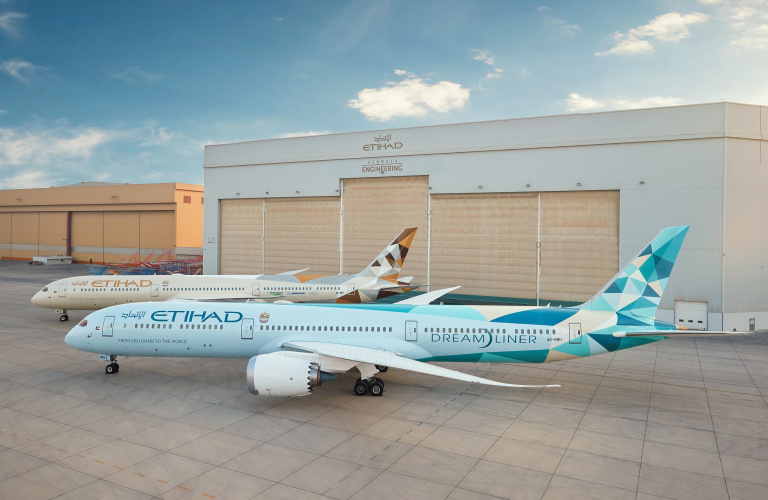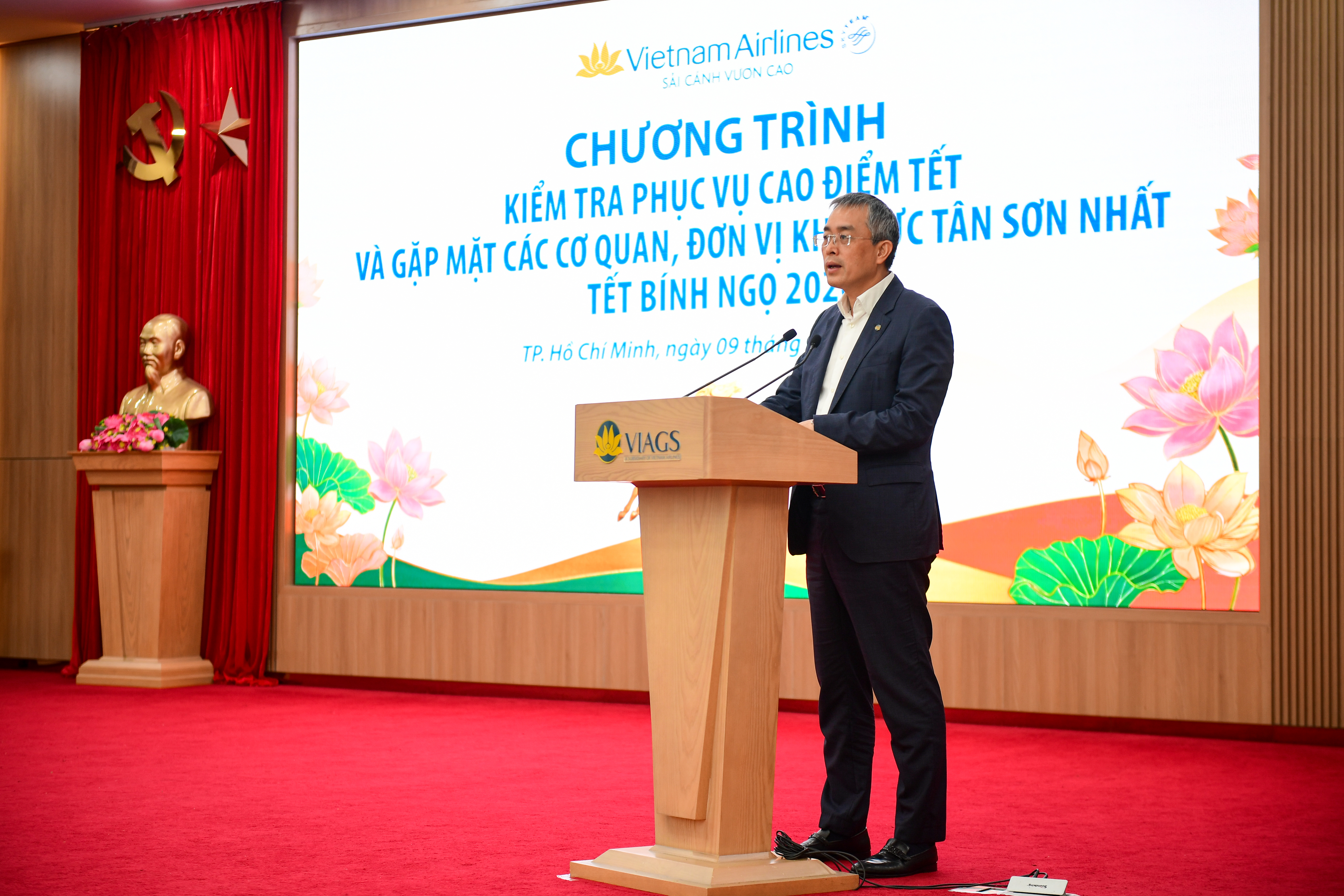The aircraft, a brand-new Boeing 787-10 registered A6-BMI, is the latest arrival to Etihad’s 39-strong fleet of 787 Dreamliners, making the UAE national airline one of the world’s largest operators of the technologically advanced aircraft type.
As the 2020 ecoDemonstrator, in partnership with Boeing, NASA and Safran Landing Systems, Etihad’s 787 Dreamliner was used as a flying testbed to accelerate technological developments with the goal of making commercial aviation safer and more sustainable. A familiar sight in the skies over the American Northwest in recent months, the uniquely branded Dreamliner, kitted out with complex testing equipment, conducted extensive research flying above Montana and between Washington state and South Carolina.
 Etihad inaugurates 2020 ecoDemonstrator. (Photo: Etihad)
Etihad inaugurates 2020 ecoDemonstrator. (Photo: Etihad)
To celebrate its launch into regular service, the special aircraft has been fitted with a commemorative plaque highlighting its contribution to sustainability, while its fuselage still retains some of the original ecoDemonstrator flight-test branding, including the ecoDemonstrator and Boeing logos, in addition to the words ‘From Abu Dhabi for the World’, a reimagined version of the airline’s famous tagline.
During the ecoDemonstrator program, A6-BMI was decked out with special equipment for eight days of specialized testing on seven initiatives to enhance safety and reduce CO2 emissions and noise. Flights took place in Glasgow, Montana, and during two transcontinental trips between Seattle, Washington, and Charleston South Carolina. During testing, a series of flights gathered the most detailed NASA aircraft noise information to date from approximately 1,200 microphones attached to the outside of the 787 and also positioned on the ground.
The information will improve NASA’s aircraft noise prediction capabilities, advance ways for pilots to reduce noise and inform future quiet aircraft designs. Two cross-country flights across the United States demonstrated a new way for pilots, air traffic controllers and airline operations centers to communicate simultaneously, resulting in optimized routing, arrival times and reduced CO2 emissions.
As part of the program, Etihad and Boeing tested two innovative ‘wellness’ technologies that will help airlines combat the treatment of COVID-19, by safely and quickly cleaning high-touch surfaces. These were a handheld ultraviolet light disinfecting system and an antimicrobial coating that helps prevent the growth of bacteria on tray tables, arm rests and other surfaces.
The highest permissible blend of Sustainable Aviation Fuel (SAF) was used throughout the program, as well as on the delivery flight from Charleston to Abu Dhabi. As a result, over 60 tonnes of emissions were avoided on the delivery flight alone.
The aircraft’s delivery flight to Abu Dhabi saw Etihad collaborate with multiple Airspace Navigation Service Providers (ANSPs) including the FAA, UK NATS and EUROCONTROL to optimise the flight path, cutting fuel burn by more than one tonne and CO2 emissions by approximately four tonnes. Following Etihad’s special flights to Brussels and Dublin in January and March 2020 respectively, this initiative continues to demonstrate Etihad’s strong track record in collaboration with ANSPs to optimize airspace utilization to deliver lower fuel consumption, noise and carbon emissions.
Etihad and Boeing also collaborated on testing new route planning technology on A6-BMI’s delivery flight. Boeing’s in-development capability forecasts a range of potential weather scenarios and suggests best available route options.
Etihad and Boeing’s partnership on the ecoDemonstrator program delivers on the airline’s commitment for its Boeing 787 Dreamliners to be a testbed for technology acceleration as part of the Etihad Greenliner program, and has demonstrated Etihad’s relentless commitment to sustainability in spite of the current COVID-19 crisis. Etihad continues to be committed to a minimum target of zero net carbon emissions by 2050 and halving of the airline’s 2019 net emission levels by 2035.
In line with Abu Dhabi’s vision and commitment to the reduction of Carbon Emissions to meet the goals of the Paris Agreement, sustainability and environmental protection is in Etihad’s DNA. Playing its part as the United Arab Emirates (UAE)’s flag carrier, Etihad’s focus on sustainable developments in aviation aligns with many other initiatives of both the Emirate of Abu Dhabi, and the whole of the UAE.
As an active member of the International Civil Aviation Organization, the UAE was among the first countries to voluntarily sign the Carbon Offsetting and Reduction Scheme for International Aviation (CORSIA). Today, the UAE is working closely with the ICAO international fuel group on Sustainable Aviation Fuels (SAF) as well Low Carbon Aviation Fuel (LCAF), both of which can play a critical role in enabling the safe and sustainable growth of the aviation sector while reducing its carbon intensity.
Cre: World Airline News
Nguyen Xuan Nghia – COMM











